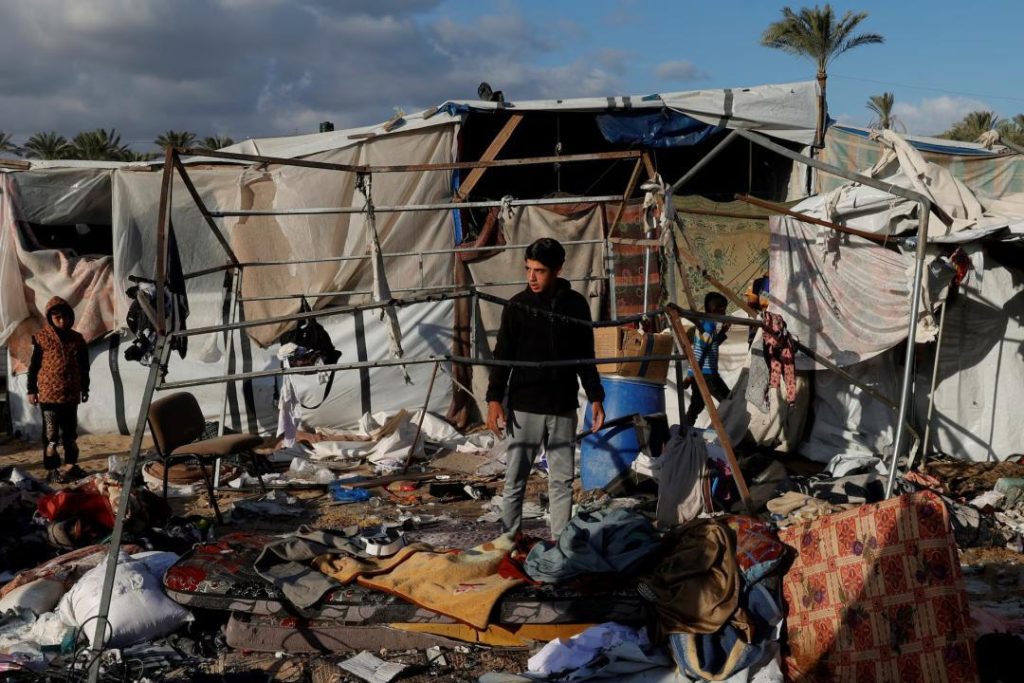
Israel will keep Gaza buffer zones even after settlement: Minister
The latest developments in the ongoing conflict between Israel and Palestine have raised concerns about the future of the Gaza Strip. Israeli Defense Minister Israel Katz recently announced that troops would remain in Gaza’s buffer zones even after a potential settlement. This statement has sparked widespread debate and speculation about the implications of such a move.
According to Katz, the Israeli Defense Forces (IDF) will continue to maintain a presence in the security zones as a buffer between the enemy and the Israeli communities. This decision comes as talks for a ceasefire have stalled, with ongoing operations and territorial gains by both sides.
The announcement has been met with criticism and skepticism from Palestinian officials and human rights organizations. They argue that the continued presence of Israeli troops in Gaza will only serve to exacerbate the already dire humanitarian situation and further entrench the occupation.
The Gaza Strip has been under Israeli military blockade since 2007, when the Islamist group Hamas took control of the territory. The blockade has had devastating consequences for the population, including widespread poverty, unemployment, and limited access to basic necessities such as food, medicine, and clean water.
The current conflict, which began in March, has seen a significant escalation in violence, with both sides reporting casualties and damage to infrastructure. The United Nations has warned of a “catastrophic” humanitarian crisis in Gaza, with over 200,000 people displaced and in need of emergency assistance.
Despite the dire situation, Israeli officials have maintained that the continued presence of troops in Gaza is necessary to ensure the security of Israeli civilians. They argue that the buffer zones provide a critical layer of protection against potential attacks and allow for the effective monitoring of militant activity.
However, Palestinian officials and human rights groups argue that the Israeli military occupation is the root cause of the conflict and that the continued presence of troops in Gaza is a violation of international law. They call for an immediate withdrawal of Israeli forces and the lifting of the blockade to allow for the rebuilding of the Gaza Strip and the promotion of peace and stability.
The announcement by Katz has also raised concerns about the potential for further human rights abuses and violations of international law. The Israeli military has been accused of using excessive force and targeting civilian infrastructure, including hospitals, schools, and residential buildings.
The humanitarian situation in Gaza is already dire, with the majority of the population reliant on international aid to survive. The continued presence of Israeli troops and the blockade will only serve to exacerbate the crisis and further entrench the occupation.
The international community has called for an immediate ceasefire and the resumption of peace talks. The United Nations has emphasized the need for a comprehensive solution that addresses the root causes of the conflict and promotes peace, stability, and human rights.
In conclusion, the announcement by Israeli Defense Minister Israel Katz that troops will remain in Gaza’s buffer zones even after a potential settlement has sparked widespread debate and concern. While the Israeli government maintains that the continued presence of troops is necessary for security, Palestinian officials and human rights groups argue that it will only serve to exacerbate the humanitarian crisis and further entrench the occupation.
As the situation in Gaza continues to deteriorate, it is essential that the international community remains committed to promoting peace, stability, and human rights. The ongoing conflict is a complex and sensitive issue, but it is clear that a comprehensive solution that addresses the root causes of the conflict is necessary to promote a lasting and peaceful resolution.
Source:





